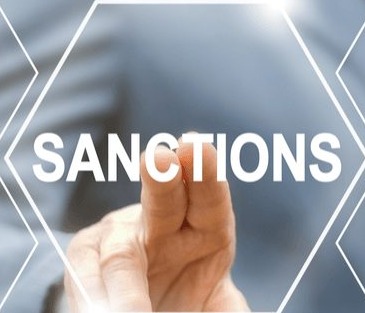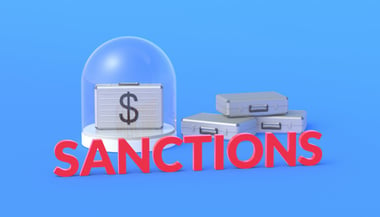The Office of Foreign Assets Control (OFAC) is a department within the U.S. Treasury that administers and enforces economic and trade sanctions against targeted foreign countries and regimes, terrorists, international narcotics traffickers, and those engaged in activities related to the proliferation of weapons of mass destruction. The purpose of these sanctions is to protect national security and uphold foreign policy objectives by denying targeted individuals and entities access to the U.S. financial system and restricting their ability to do business with U.S. companies and citizens.
Types of Sanctions Imposed by OFAC
OFAC sanctions can take various forms, including comprehensive sanctions against entire countries, such as Cuba and North Korea, as well as more targeted sanctions against specific individuals, entities, and organizations, known as Specially Designated Nationals (SDNs). These sanctions may involve freezing assets, prohibiting transactions, and blocking property to prevent the designated parties from gaining financial or material support.
What is the OFAC Sanctions List?
The OFAC sanctions list is a critical tool used by the Office of Foreign Assets Control to enforce U.S. economic and trade sanctions. This list includes individuals, entities, and countries that are subject to various sanctions due to their involvement in activities that threaten national security, foreign policy, or the economy of the United States.
Explanation of the OFAC Sanctions List and Its Purpose
The primary purpose of the OFAC sanctions list is to prevent prohibited transactions and activities with designated persons and entities. This includes freezing assets and restricting financial transactions to disrupt the operations of targeted individuals or organizations. By doing so, OFAC aims to hinder the financial capabilities of these entities and reduce their influence.
Differentiation Between the Various Lists: SDN List, Consolidated Sanctions List, etc.
OFAC maintains several different sanctions lists, each serving a unique purpose:
- Specially Designated Nationals (SDN) List: This list includes individuals and companies owned, controlled by, or acting on behalf of targeted countries. Their assets are blocked, and U.S. persons are generally prohibited from dealing with them.
- OFAC Consolidated Sanctions List: This is a compilation of multiple sanctions lists including the SDN list, Sectoral Sanctions Identifications (SSI) list, Foreign Sanctions Evaders (FSE) list, and more. It provides a comprehensive resource for entities to check against when conducting transactions.
- Sectoral Sanctions Identifications (SSI) List: This list targets specific sectors of the Russian economy, including finance, energy, and defence, imposing prohibitions on certain types of transactions with entities in these sectors.
- Foreign Sanctions Evaders (FSE) List: This list includes foreign individuals and companies that have violated, attempted to violate, conspired to violate or caused a violation of U.S. sanctions against Syria or Iran.
These lists are regularly updated to reflect the latest sanctions imposed and to ensure that businesses have access to the most current information for compliance purposes.
Key Components of the OFAC Sanctions List
Specially Designated Nationals (SDN) List
The Specially Designated Nationals (SDN) List is one of the most significant components of the OFAC sanctions program. This list includes individuals and entities that are owned or controlled by, or acting on behalf of, targeted countries. It also includes those involved in terrorism, narcotics trafficking, and other activities that pose threats to the United States.
Description and Significance of the SDN List
The SDN List identifies individuals, groups, and entities such as terrorists, narcotics traffickers, and others engaged in activities that threaten the national security, foreign policy, or economy of the United States. Assets of those on the SDN List are blocked, and U.S. persons are generally prohibited from dealing with them. This action disrupts their financial networks and impedes their ability to operate.
Impact on Businesses and Financial Transactions
For businesses, compliance with the SDN List is crucial. Engaging in transactions with SDNs can lead to severe legal and financial penalties, including hefty fines and potential imprisonment for responsible individuals. Companies must screen their customers, vendors, and business partners against the SDN List to ensure they do not inadvertently engage in prohibited transactions. Automated compliance solutions can help businesses stay compliant by continuously monitoring updates to the SDN List and alerting them to potential risks.
OFAC Consolidated Sanctions List
The OFAC Consolidated Sanctions List is a comprehensive compilation that includes various sanctions lists maintained by OFAC, ensuring that entities have a single point of reference for compliance.
Overview of the Consolidated List
The consolidated list includes the SDN List, the Sectoral Sanctions Identifications (SSI) List, the Foreign Sanctions Evaders (FSE) List, and others. This aggregation helps organizations streamline their compliance processes by providing a unified resource for screening and due diligence.
Different Types of Sanctions Included: SSI, FSE, CAPTA, etc.
- Sectoral Sanctions Identifications (SSI) List: Targets specific sectors of the Russian economy, such as finance, energy, and defence, imposing restrictions on certain types of transactions with entities in these sectors.
- Foreign Sanctions Evaders (FSE) List: Identifies foreign individuals and entities that have engaged in conduct violating U.S. sanctions against countries like Syria and Iran.
- CAPTA (Correspondent Account or Payable-Through Account Sanctions) List: This list includes foreign financial institutions subject to sanctions that prohibit them from opening or maintaining correspondent accounts in the United States.
By integrating these various lists, the OFAC Consolidated Sanctions List serves as a vital tool for businesses to ensure comprehensive compliance with U.S. sanctions laws.
Countries on the OFAC Sanctions List
OFAC's sanctions are not limited to individuals and entities; entire countries can be subject to trade and financial restrictions based on their activities and policies. These sanctions are designed to exert economic pressure and influence policy changes in these nations.
Current List of OFAC Sanctioned Countries
As of the most recent updates, the following countries are subject to comprehensive sanctions by OFAC:
- Belarus
- Burma (Myanmar)
- Cuba
- Democratic Republic of Congo
- Iran
- Iraq
- Ivory Coast (Côte d'Ivoire)
- Liberia
- North Korea
- Sudan
- Syria
- The Balkans region
- Zimbabwe
These sanctions can vary in severity and scope, impacting different sectors such as finance, energy, trade, and more.
Example Countries and the Types of Sanctions Imposed
- Iran: Subject to extensive sanctions affecting its financial, energy, and military sectors. U.S. persons are prohibited from conducting most transactions with Iranian entities and individuals. These sanctions aim to curb Iran's nuclear program and its support for terrorism.
- North Korea: Comprehensive sanctions include prohibitions on importing goods, services, and technology from North Korea. These measures target the regime's nuclear weapons program and human rights abuses.
- Syria: Sanctions against Syria target the Assad regime's actions, including human rights violations and support for terrorism. These sanctions restrict the export of goods and services to Syria and freeze the assets of Syrian officials and entities.
These examples illustrate the broad impact of OFAC sanctions, which aim to isolate targeted countries economically and diplomatically to induce policy changes.
Importance of OFAC Sanctions Compliance
Legal and Financial Implications
Complying with OFAC sanctions is crucial for businesses operating within or with the United States. Failure to adhere to these sanctions can result in severe legal and financial consequences, including hefty fines and imprisonment for responsible parties. Non-compliance can also lead to the freezing of assets and prohibition from conducting further business transactions, significantly impacting a company's financial health and operational capabilities. For example, Deutsche Forfait AG faced financial losses and filed for insolvency due to non-compliance with Iran sanctions, highlighting the severe repercussions of failing to adhere to OFAC regulations.
Case Studies of Non-Compliance
In 2014, Deutsche Forfait AG, a publicly listed company, was accused of conducting oil transactions with the National Iranian Oil Company, which was subject to sanctions. The repercussions were dire, with the company facing an estimated financial loss of €150 to 200 million and eventually filing for insolvency. This case underscores the importance of compliance with rigorous sanctions to avoid similar outcomes.
How to Conduct an OFAC Sanctions Search
Utilizing OFAC Sanctions List Search Tools
Conducting an OFAC sanctions search is a critical step in ensuring compliance. The OFAC sanctions list search, also known as the OFAC Screening Tool, allows businesses to check if any individuals, entities, or countries they are dealing with are on the sanctions list. This search can be done through the official OFAC website, where the Specially Designated Nationals (SDN) list and other sanctions lists are regularly updated. Using automated search tools integrated into your business processes can help streamline this task and ensure that you are always in compliance.
Integrating Sanctions Checks into Business Processes
For businesses to maintain compliance efficiently, it is essential to integrate sanctions checks into their existing business processes. This can be achieved by embedding automated sanctions screening within your enterprise resource planning (ERP) or customer relationship management (CRM) systems. This integration allows for continuous monitoring and immediate alerts if a match is found, ensuring that no transactions are conducted with sanctioned entities inadvertently. Such a proactive approach not only ensures compliance but also mitigates the risk of financial and reputational damage.
Best Practices for Managing OFAC Sanctions Compliance
Implementing a Risk-Based Approach
A risk-based approach is essential for effective sanctions compliance. This strategy involves assessing the risk associated with different customers, transactions, and business relationships and then tailoring your sanctions screening processes accordingly. Higher-risk customers and transactions should undergo more rigorous screening and monitoring compared to lower-risk ones. This targeted approach helps allocate resources efficiently and ensures that the most significant risks are addressed promptly.
Regularly Updating Sanctions Lists
Sanctions lists are frequently updated as new individuals, entities, and countries are added or removed. Therefore, it is crucial to ensure that your sanctions screening tools are always using the most current lists. Regular updates can prevent the risk of non-compliance and ensure that your business does not inadvertently engage in prohibited transactions. Automated systems that regularly pull updates from official sanctions lists can help maintain compliance and reduce manual efforts.
Employee Training and Awareness
Continuous training and awareness programs for employees are vital to maintaining an effective sanctions compliance program. Employees should be well-informed about the importance of sanctions compliance, how to use the screening tools and the potential consequences of non-compliance. Regular training sessions and updates on the latest sanctions regulations and best practices can help ensure that everyone in the organization is vigilant and knowledgeable about compliance requirements.
Why is it important to have a sanctions screening tool?
There are no legislative requirements for how you must verify sanction lists. However, as a corporation, you have the difficulty of finding a way to thoroughly and cost-effectively review the numerous sanctions lists without disturbing your daily operations. Manual checks would be hard and time-consuming due to the large number of sanction lists that need to be verified, and it can also easily lead to human error. Finding an automated system to complete these mandatory tests makes sense and is the simplest way to reach the compliance standards that regulators like OFAC require.
Ensure your business stays compliant with OFAC regulations by leveraging Tookitaki's Smart Screening solution. Our advanced technology offers automated screening, continuous monitoring, and comprehensive compliance management, helping you navigate the complexities of international sanctions.
Speak to a member of the team to learn more about how Tookitaki’s solutions can enhance your sanctions compliance program.
Anti-Financial Crime Compliance with Tookitaki?






